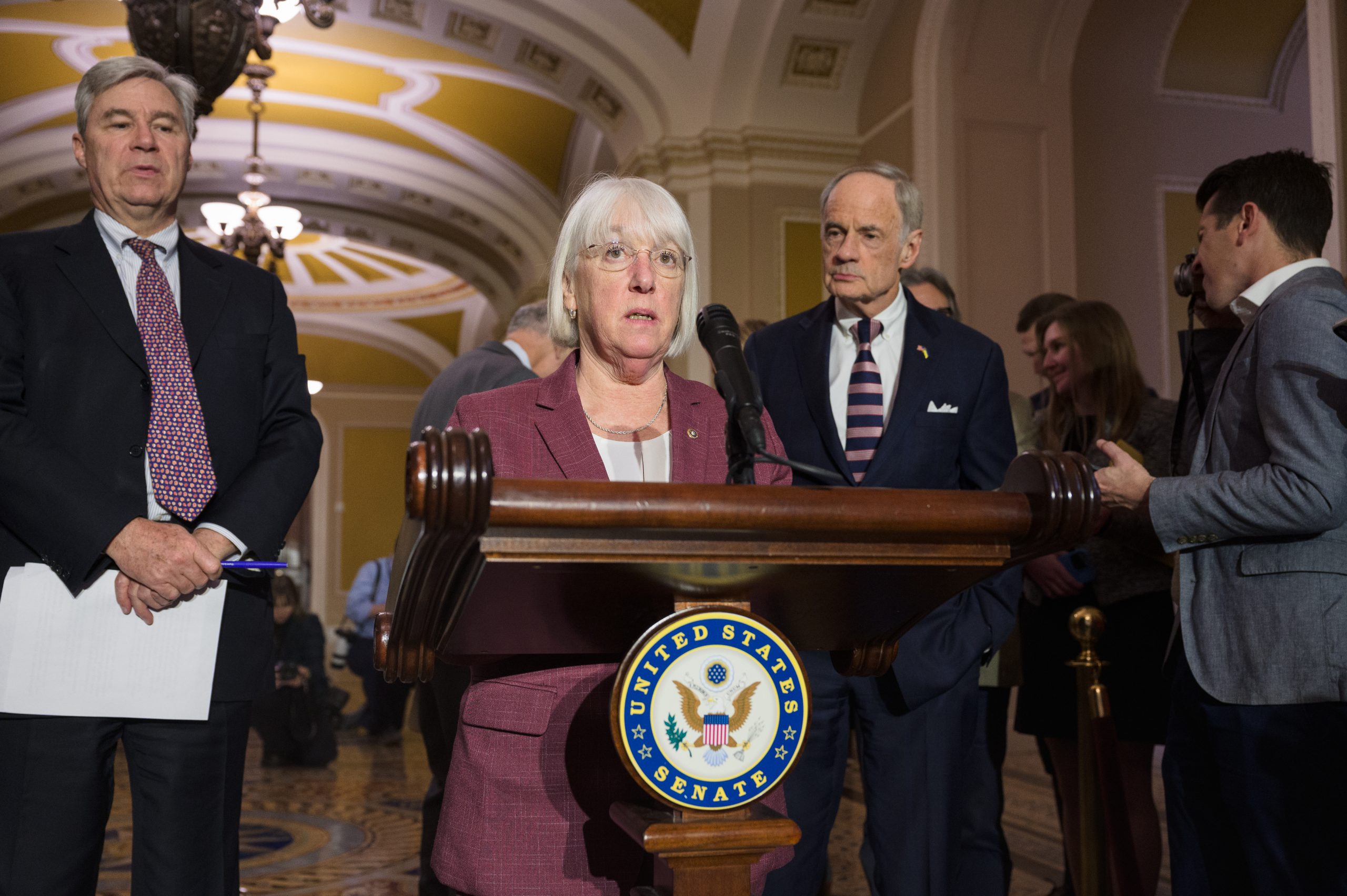ICYMI: Murray’s Bill to Help Hanford Workers Suffering from Toxic Beryllium Exposure Included in Must-Pass National Defense Authorization Act
***VIDEO of Senator Murray speaking on the Senate Floor HERE***
Washington, D.C – Today, U.S. Senator Patty Murray (D-WA), Chair of the Senate Appropriations Committee, voted to pass the National Defense Authorization Act for Fiscal Year 2024 (NDAA), which passed the Senate by a vote of 86-11.
“Having a strong military means more than just investments in weapons, equipment, or facilities—it means investing in the brave men and women who put their lives on the line to keep our country safe,” Senator Murray said. “In addition to shoring up our national defense, this year’s NDAA takes important steps to support military families, from providing the largest pay increase for military and civilian personnel in over two decades to making continued progress to improve child care on military bases and education services for military children. Importantly, this bill also provides new authorities to help combat the flow of deadly fentanyl, which has been so devastating for communities across Washington state.”
“My legislation makes sure workers are getting support to deal with one of the most dangerous threats they face at Hanford—beryllium exposure,” Murray said on the Senate floor this week. “This is a serious health risk that can cause severe respiratory disease, irreversible scarring of the lungs, and lung cancer. Now, Congress passed legislation in 2000 providing care to those who have made incredible sacrifices by working on our nuclear arsenal but here’s the thing: not everyone who needs those critical medical benefits for beryllium exposure can get them today. That’s because the diagnostic standard is outdated and out of line with the current science.”
“Workers in America, who are cleaning up one of the most toxic and radioactive nuclear sites on the planet, should not have to jump through cumbersome and unnecessary hoops, and have the care they need delayed or even denied, all because the standard is outdated,” Murray continued during her floor speech regarding her amendment. “This bill will help make sure we don’t lose precious time getting workers the support they need to manage this awful disease…They may not be telling the story of these workers on the silver screen—yet. But as long as I am in the Senate, you can bet their voices will be heard in the halls of our nation’s Capitol.”
The Senate-passed legislation included Senator Murray’s bill, the Beryllium Testing Fairness Act, which will help more Hanford workers and nuclear weapons complex workers across the country access care for diseases caused by toxic beryllium exposure. Currently, federal laws place an outdated overly burdensome proof of illness requirement on nuclear weapons complex workers, preventing many workers from getting the care they need. Senator Murray’s bill will update these testing requirements to be consistent with the latest science to ensure that more nuclear complex weapons workers—past and present—dealing with health issues caused by beryllium exposure receive the health care benefits they need and deserve.
Video of Senator Murray speaking on the Senate floor about her legislation is HERE, and a one-pager on Senator Murray’s Beryllium Testing Fairness Act is HERE.
In addition to Senator Murray’s Beryllium Testing Fairness Act, the NDAA bill Senator Murray helped pass will:
- Provide a 5.2 percent pay raise for military and civilian personnel, the largest pay increase in more than 20 years.
- Authorize a pilot program to assess the effectiveness of increasing Child Development Center employee pay to increase employee recruitment and retention, part of Senator Murray’s longstanding work to improve child care on military bases.
- Improve care and education services for military families, including by authorizing DOD to provide funding to local education agencies supporting children of servicemembers and extending support for re-licensure of spouses affected by military moves and adds doula certifications to the list of eligible professions.
- Help combat the fentanyl crisis and curtail the flow of deadly fentanyl into American communities by targeting the illicit fentanyl supply chain, from chemical suppliers in China to the cartels that transport the drugs in Mexico.
- Combat toxic PFAS contamination by giving the Secretary of Defense broader authority to treat certain materials contaminated with PFAS and perform remediation at National Guard facilities operated by states. The bill also requires the Department to establish a dashboard that tracks funding related to PFAS that includes research and development efforts, testing, remediation, contaminant disposal, and community outreach.
- Expand access to infertility treatment by requiring TRICARE to cover Assisted Reproductive Technology services for members of the uniformed services and their dependents.
- Require a report on family planning and cryopreservation including the number of servicemembers who leave the service for family planning reasons, whether cryopreservation would lead to greater retention of servicemembers, and methods for DOD to offer cryopreservation to active-duty members.
- Direct the Air Force to provide a brief to the House and Senate Committees on Armed Services on what the potential increase in air refueling capacity and costing savings would be if all Air National Guard KC-135 units were made active association units. This is a continuation of Murray’s longstanding effort to get KC-135 tankers for the Washington Air National Guard to ensure the airmen at Fairchild Air Force Base have the planes they need to perform their mission and increase tanker capacity for the military.
###


